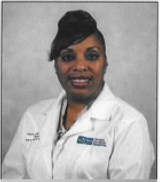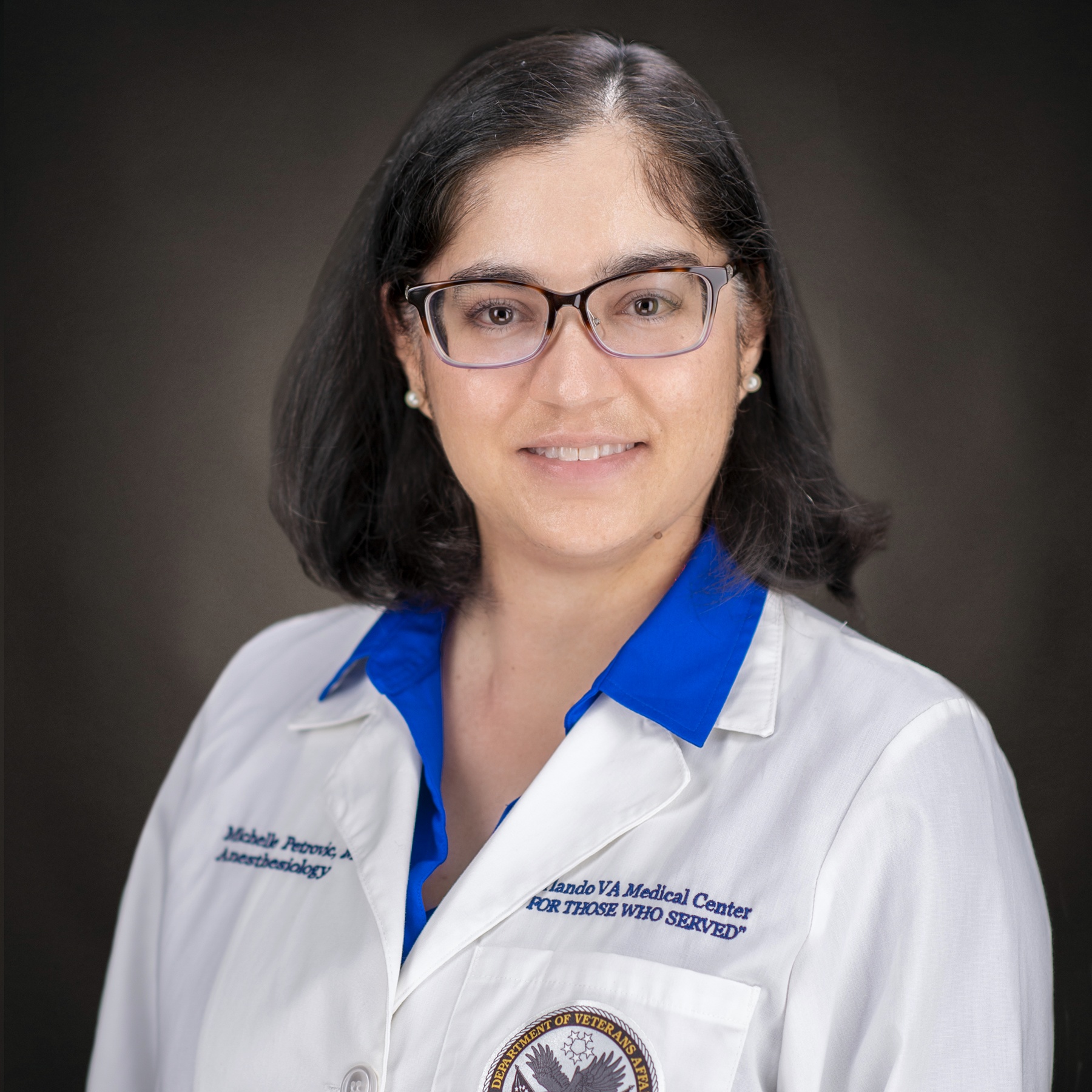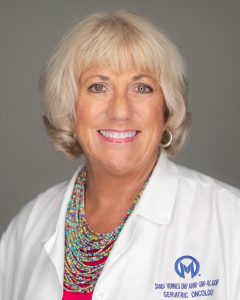FAHQ Annual Conference
|
 |
Go to Conference Overview/Hotel and Conference Schedule for more information on the hotel, CE and schedule..
Go to Conference Registration for more information on fees and to register.
An engaging discussion and workshop that provides an overview of project management methodology. We explore project management tools and techniques that healthcare quality professionals can leverage to ensure project success.
NAHQ Competency Framework Domain(s): Quality Leadership and Integration, Performance and Process Improvement
Sandy Weiss, DBA, MBA-HCM, RN, CPHQ, CPPS, CSM, PMP
Assistant Professor of Instruction, School of Marketing and Innovation, Muma College of Business, University of South Florida, Tampa, Florida
Dr. Weiss teaches a variety of management courses for the University of South Florida’s Muma College of Business at the undergraduate and graduate levels as an Assistant Professor of Instruction. In addition to teaching, she focuses on management consulting in the healthcare space as well as career coaching for young professionals and healthcare professionals. She also develops and executes workshops that aim to enhance employee emotional intelligence, mitigate turnover intention, enhance resilience, and reduce burnout.
Recent professional roles include serving as the Division Director of Quality for a large for-profit healthcare system, where she led clinical quality and regulatory compliance initiatives within the ambulatory care setting. Then she served as the Vice President of Education for a medical device startup, and recently successfully exited after acquisition. She has robust experience across the healthcare continuum in a variety of leadership roles, from co-founding a companion care company, working on CMS contracts, to leading in the acute care and inpatient rehabilitation settings. She earned her Doctor of Business Administration and Master of Business Administration with a Concentration in Healthcare Management from Saint Leo University. Her research focuses on focused on healthcare worker emotional intelligence, turnover intention, resilience, burnout, and job performance.
Dr. Weiss serves as a Director on the Board of Directors for the Florida Association for Healthcare Quality and has been elected President Elect, with her term starting January 2024. She is also on the board for the Leadership St. Pete Alumni Association. Dr. Weiss is a Certified Professional in Healthcare Quality (CPHQ), a Certified Professional in Patient Safety (CPPS), Certified Scrum Master (CSM), and Project Management Professional (PMP). She also holds a graduate certificate in Innovation and Human Centered Design from the Johns Hopkins Carey Business School and is an AHRQ TeamSTEPPS 2.0 Master Trainer.
An engaging discussion of high-profile and high-risk elements of performance required for a successful accreditation survey presented in a way that demystifies compliance along with practical tips on how to apply common sense communication skills and psychology for a non-painful medical record review interview.
NAHQ Competency Framework Domain(s): Regulatory and Accreditation
Marianne Sevcik, RN MSN
Healthcare Advisor/Founder, Partnership Consulting International, LLC, Delray Beach, Florida
Marianne Sevcik’s clinical foundation began over 30 years ago as a labor and delivery RN gaining experience in diverse health care settings. She held leadership positions directing multiple Women’s and Children’s service lines in the US and was successful in improving quality outcomes for childbearing families and in streamlining clinical workflow to increase safety, efficiency, and value. Marianne led the team that was first in the state of Florida to receive TJC’s Perinatal Certification. She was appointed as a Florida Perinatal Regional Leader as well as a recipient of The Spirit of Planetree Award for contributions in patient experience, leadership and volunteerism.
Prior to starting her own consulting business, Marianne worked for The Joint Commission (TJC) as a Surveyor in the Hospital Accreditation Program. She was a team leader for many survey types including Perinatal Certification, Intracycle Monitoring (ICM), Medicare Deficiency, Office of Quality and Patient Safety (OQPS) Surveys, Preliminary Denial of Accreditation (PDA) and Focused Surveys (FSA). She worked collaboratively to facilitate decrease of the national maternal mortality rate as a subject matter expert through authoring policy, conducting process improvements to standardize survey activity, national public speaking, and education in her role at TJC.
Patient volume and acuity continues to grow and increase with our system being challenged. We need to change our approach, by combining people, process and technology with the care provided. This will drive significant improvements in quality, safety and efficiency. Removing the inefficiencies and giving the patient and healthcare team members the tools and information needed to achieve the best outcomes The goal is to arm the healthcare team with technology. This allows providers to be with their patients, anticipate patient needs and remove any potential roadblocks to care. At Tampa General Hospital, the front-line team members are supported by a Care Communication (CareComm) team that 24/7/265 acts as a safety net alerting the team of any changes in patient condition or removing roadblocks to discharge. Quality, safety and efficiency is the outcome using the best people, process and technology. In our presentation we will explain our approach and complete a virtual tour of our Command Center.
NAHQ Competency Framework Domain(s): Population Health and Care Transitions, Patient Safety
Jane Casey, RN, MScN
Vice President, CareComm Operations, Tampa General Hospital, Tampa, Florida
Jane Casey is a dedicated health care professional with a breadth and depth of experience in health care leadership that spans nearly 30 years throughout Canada and now in the US. As a seasoned health care professional Jane joined Tampa General Hospital Feb 2023 as VP of our clinical command center (CareComm that provides real-time situational awareness to improve and coordinate patient care more effectively and efficiently by automatically collecting data to gather valuable patient insights. Before joining Tampa General, she spent more than six years as the director of Emergency Services and Command Centre (Access and Flow) at Humber River Hospital saving 35 inpatient beds and over 6.5 million dollars with staff engagement scores of over 92%. Humber features the largest-volume emergency department in the province of Ontario, Canada and has been top-ranked for pay-for performance results for more than four years. She was instrumental in helping Humber River Hospital reduce the emergency department budget by $1.5 million, and led the implementation of the first Command Centre in Canada, second in the world, in partnership with GE Healthcare. Jane earned her Master of Science in Nursing from D’Youvilie University and her Bachelor of Science in Nursing from Ryerson University. She also received a Nursing diploma from Cambrian College. Jane has published several articles and has spoken widely around her work. Her goal is to combine technology with compassionate people and patient centered care always supporting the movement of frontline staff and physicians to be at the bedside with current information caring for their patients and colleagues.
Ronetta Lambert, MHA, RN
Senior Director, CareComm Operations, Tampa General Hospital, Tampa, Florida
After joining Tampa General Hospital as a Nurse Manager in 2014, Ronetta quickly emerged as a leader. Her ability to work across departments to spearhead innovative processes and improve patient safety and quality outcomes led to her promotion to Director of Inpatient Medicine in 2015. Ronetta’s scope continued to grow as she served as nurse lead for our Inpatient Hospice unit, oversaw our Behavioral Psych Nurse Department, Diabetes Nurse Specialists and various initiatives to improve medicine length of stay alongside our providers and Case Management teams. Prior to joining TGH, Ronetta worked at the University of Maryland Medical Center as a Nurse Manager in Cardiac Telemetry and Vascular Surgery Stepdown unit. She also served as the nurse lead when the medical center transitioned to EMR. Ronetta earned her master’s degree in health care administration from the University of Maryland College Park in 2009 received her Bachelor of Science in Nursing (BSN) from Hampton University, located in Hampton, Va., in 1996. In 2018, Ronetta was asked to serve as one of our leads in the development of our CareComm Command Center. Ronetta’s leadership assisted with the development of the Departure Lounge, which now serves approximately 100-115 patients per day, which has led to an improvement in our median discharge time of day by 30 minutes prior to CareComm opening. In her current position, Ronetta has redesigned and developed key roles, including Administrators on Duty and our Clinical Expeditors to mitigate barriers and delays that hinder care progression and improve patient throughput. Ronetta’s unique ability to recognize and mitigate bottlenecks and inefficiencies with patient throughput and care progression has been instrumental in the ongoing work with our interdisciplinary teams to leverage the technology of our CareComm tiles to drive hospital efficiency. Ronetta partnered with the multidisciplinary leaders to develop TGH’s Capacity Management plan to define capacity constraints and design pressure indicators regarding capacity. Ronetta also led our team in the rollout of our Zero Harm Safety Huddles, which continue to play an instrumental role in proactively addressing safety concerns with leadership.
Lein Le, MD
Vice President of Hospital Medicine and Associate Chief Medical Officer, Tampa General Hospital, Tampa, Florida
Dr. Lien Le is a healthcare leader, clinical innovator, system thinker, entrepreneur, and business builder. Over the last decade at Mass General Brigham Newton Wellesley Hospital, Dr. Le transformed the health of diverse sets of patient populations. She partnered with endocrinology, nutrition, and many other departments to reimagine the care of hospitalized patients with diabetes. For patients with orthopedic injuries, she redesigned rapid responses for orthopedic patients and built co-management services to bridge the cultural divide between orthopedic and internal medicine departments. Recognizing that the hospital’s approach to post-operative consultation did not address the overall health of perioperative patients, she built an outpatient ambulatory Surgical Navigation and Preparation Clinic. Dr. Le led clinical efforts to increase inter-hospital transfers not only within academic centers at Mass General Brigham but also from hospitals in New Hampshire and Maine. Partnering with engineering, and working with various departments, she successfully achieved compliance and regulatory approval to open an Observation Unit. During the COVID-19 pandemic, Dr. Le oversaw the operations for the medical staff surge. At her core, Dr. Le is a hospitalist, and a clinician educator and has won many accolades for her teaching abilities. She joined Tampa General Health System in 2023 to lead hospital medicine services as well as to serve as the dyad partner to the VP of operations in all inpatient operations work for TGH CareComm and the TGH transfer center. Dr. Le received her medical degree from Dartmouth and Brown Medical Schools, her internal medicine residency training at Boston Medical Center, and her MBA at MIT Sloan School of Management. She served as the inaugural Medical Director of Inpatient Medicine and Observation Unit and the SPAN clinics at Mass General Brigham, Newton Wellesley Hospital until 2023. She currently works at Tampa General Health System as Vice President of Hospital Medicine and Associate Chief Medical Officer. She’s a mother to two wonderful daughters.
Hospital length of stay beyond the CMS Geometric Mean LOS (GMLOS) contributes to complications for patients and unnecessary utilization of hospital and patient resources. The absence of system-wide Standard Work for robust interdisciplinary discharge planning and communication led to this project. This project became a template for system-wide improvement.
NAHQ Competency Framework Domain(s): Quality Leadership and Integration; Performance and Process Improvement
Beth Koon-Spiwak, LCSW, CPHQ, Lean Six Sigma Black Belt, Lean Certified
PI Project Manager, BayCare Health Systems, Clearwater, Florida
Beth Koon-Spiwak’s clinical foundation began over 35 years ago as a Licensed Clinical Social Worker in behavioral health care settings. She has management experience in inpatient and partial hospitals, as well as in managed care. She has served as Florida Chapter President for the National Association of Social Workers and the Society for Social Work Leaders in Health Care. She has worked in healthcare quality and performance improvement since 1988. Beth’s experience in performance improvement has spanned from hospital-based projects to system-wide projects since 2004. Beth has presented at numerous professional conferences, including the National Association of Social Workers, Watson Caring Science Consortiums, and NAHQ. She co-authored a poster winning the Structural Excellence award at the 2010 ANCC Magnet Conference.
An examination of the 32 clinical systems developed for the skilled nursing clinical environment reveals their proven clinical and survey success. These comprehensive systems are specifically designed to address the needs of nurses, nursing managers, and directors of nursing, providing them with the tools to manage resident care and care delivery effectively and efficiently. By implementing these elements, the overall quality of care and facility quality measures can be significantly improved. Through careful analysis and implementation, these systems have demonstrated their effectiveness in streamlining processes, enhancing communication, and promoting patient-centered care. The success and impact of these elements cannot be understated, as they have proven to be invaluable resources in the pursuit of excellence within the skilled nursing clinical environment.
NAHQ Competency Framework Domain(s): Population Health and Care Transitions, Patient Safety
Raven Jackson, MHS, HSE, LNHA
Licensed Nursing Home Administrator, Principle LTC, Greensboro, North Carolina
With almost 15 years of invaluable experience in the long-term care industry, 9 of which as a proficient nursing home administrator, Raven has dedicated her career to ensuring the highest quality of care for our elderly population. Throughout her journey, she has successfully operated skilled nursing facilities in multiple states, including Florida, Georgia, Iowa, and North Carolina. This diverse background has provided her with a comprehensive understanding of long-term care operations from various perspectives. Honored to be named McKnight’s Rising Star in 2020, her profound dedication and commitment to this field continuously fuels her ambition to drive positive change within the industry. As an adjunct professor at Florida A&M University, she has the privilege of imparting knowledge and experience to the next generation of healthcare professionals. Additionally, she proudly serves as an advisory board member for the esteemed Undergraduate Health Care Management program at Florida A&M University. Raven’s unwavering enthusiasm and expertise also extends to her role as a member of the survey and regulatory committee with the Florida Health Care Association. Collaborating with industry leaders, she actively contributes to shaping policies and ensuring quality compliance.
Teresa Edge, RN
Regional Director of Clinical Operations, Bedrock Care, Orlando, Florida
With over 20 years of dedicated service in the long-term care industry, Teresa has diligently advanced from a Licensed Practical Nurse (LPN) to her current role as Regional Director of Clinical Operations. Her journey has been defined by resounding success and a comprehensive understanding of all aspects of long-term care. She has laid a solid foundation for achievements by serving in various nurse administrative roles throughout her career. This invaluable experience has empowered her to enhance quality outcomes, streamline clinical practices, boost patient satisfaction, improve star ratings, and optimize overall clinical operations across each center under my guidance. Currently, she has the privilege of overseeing the clinical operations of six centers. By nurturing talent and mentoring the Director of Nurses under her leadership, she passionately promotes continuous growth and development within the nursing community. Teresa’s dedication and expertise have been recognized with three consecutive years of deficiency-free surveys. Through continuous learning, innovation, and collaboration, she strives to elevate the standards of patient care and contribute to the overall advancement of the industry. To further honor her commitment, she was bestowed with the prestigious title of Florida Health Care Association Nurse Administrator of the Year in 2020.
Underreporting of adverse events/close calls in healthcare is a well-known problem within the industry. The number of preventable patient harm events is estimated to be greater than 400,000 per year and is also cited as the 3rd leading cause of death. The aim of this improvement project is to increase event reporting rates through utilizing simulation-based education that improves systems thinking, the identification of close call/adverse events, and staff knowledge on reporting processes.
NAHQ Competency Framework Domain(s): Performance and Process Improvement, Patient Safety
Kristie Power, RN, MS
Chief Nurse, Patient Safety, Orlando VA Healthcare System, Orlando, Florida
Kristie Power is currently the Chief Nurse of Patient Safety at the Orlando VA Healthcare System (OVAHCS) where she brings over 12 years in patient safety, high reliability and quality management experience. She received a Bachelor of Science degree in Nursing from Rivier College in Nashua, NH and a Master of Science degree in Health Informatics and Management from the University of Massachusetts. She is also currently pursing her Doctorate of Nursing Practice in Executive Leadership from the University of Central Florida.
Before coming to OVAHCS, Kristie was the Systems Redesign Coordinator and a Quality Management specialist at the Edith Nourse Rogers Memorial VA hospital in Bedford, MA. Kristie is also a certified Lean Six-Sigma Black Belt, Baldrige Coach, VHA Coach and Mentor at the fellow level. She is also a graduate of the Edith Nourse Rogers Memorial Veterans Hospital’s LEAD (leadership) program as well as the VISN1 LEAD program.
Michelle Petrovic, MD
Director and Chief of Medical Simulation & Anesthesiologist, Orlando VA Healthcare System, Orlando, Florida
Michelle Petrovic, M.D. is the Director and Chief of Medical Simulation for the Orlando VA Healthcare System. She attended college at Harvard and medical school at Johns Hopkins. Dr. Petrovic completed a residency in anesthesiology at Johns Hopkins where she subsequently served on faculty for 10 years. During her time at Johns Hopkins, she developed international patient safety communication tools. She joined the Orlando VA with the intent to grow and enhance the educational mission of the enterprise. She was just named as a 2024 MIT Catalyst Fellow at the Massachusetts Institute of Technology. She is one of just 15 selected from global applicants and the fellowship is an international private sector/academia /VA/industry collaborative think-tank to drive innovative solutions in healthcare including through the development of technical prototypes and AI. Dr. Petrovic hails from a family of Veterans and considers it a privilege and honor to serve Veterans both clinically and through simulation educational endeavors.
Recognizing the challenges for leadership post pandemic, we created a curriculum using simulation to develop the skillset of our front line and mid-level leaders. This curriculum included utilization of our simulation center, actors, and real-life situations from our safety reporting system. The learning sessions were designed to be individual and included personal discussions and debriefs. The learning objectives included how to create psychological safety while maintaining a fair and just culture for staff. We will review how the curriculum was created, and the implementation process. We will highlight the successes and lessons learned throughout the process.
NAHQ Competency Framework Domain(s): Quality Leadership and Integration, Patient Safety
Larissa Adams, MBA, RT(R)(VI)
Performance Improvement Advisor, Mayo Clinic, Jacksonville, Florida
LaRissa Adams is a Performance Improvement Advisor in Quality at the Mayo Clinic in Jacksonville, Florida. She began her career in healthcare by completing the Radiography Program with the Mayo Clinic School of Health Sciences. LaRissa spent several years as a technologist in the Interventional Radiology and Cardiology departments while completing her undergraduate degree in Health Care Administration, and her Master of Business Administration with a concentration in Project Management. She then spent three years in education as the Clinical Coordinator for her alum Radiography Program. Throughout her career at Mayo Clinic, LaRissa continued to enhance her skills with quality improvement in relation to high reliability organizations, Lean methodologies, and a safety culture. After recognizing her passion for Quality in Healthcare, she transitioned to her current role where she is able to share her clinical experience in radiology, continuous improvement and supporting a culture of safety.
Adam Rubin, BS, R.T.(R)(VI)
Medical Physicist Assistant, Mayo Clinic, Jacksonville, Florida
Adam Rubin serves as a Medical Physicist Assistant at Mayo Clinic in Jacksonville Florida. Adam also supports Mayo Clinic Florida’s Culture of Safety program, serving as an executive committee member since 2021. Adam began his career in Interventional Radiology after graduating from the Mayo Clinic Jacksonville Radiography Program in 2006. He earned his post-primary certification in Vascular Interventional Radiography in 2009. Adam obtained his Bachelor of Science degree from Grand Canyon University with a major in Leadership and Advanced Patient Care in 2019. Adam was the Supervisor of Interventional Radiology from 2013 to 2018. Adam served as Radiology Clinical Manager, from 2018 to 2021, where he supported the clinical and operational functions of the Interventional Radiology, Nuclear Medicine, CT, Transport, and the Medical Physics departments. In this role, Adam also oversaw all the quality and safety efforts, including the Culture of Safety program, across the department of Radiology.
Learn how Listening and Engagement Walks have connected leaders with front line staff across the facility and how the close the loop process has improved staff’s perception of being heard.
NAHQ Competency Framework Domain(s): Patient Safety, Quality Review and Accountability
Nancy L. O’Keefe, MHA, BSN, RN, CPHQ
Quality Manager, Mayo Clinic, Jacksonville, Florida
Nancy is the Quality Manager at Mayo Clinic in Jacksonville, Florida where she has worked since 1991. She became a registered nurse in 1985 after having received a Bachelor of Science in Nursing degree from Illinois Wesleyan University, in Bloomington, Illinois. She was inducted into Sigma Theta Tau, International Nursing Honor Society, in 1996. In March 2015, Nancy received her Masters of Health Administration with a minor in Informatics from the University of Phoenix.
Nancy has served in various roles at the Mayo Clinic over the past 32 years, including Director of Patient Care for the Orthopedic/Neurology/Neurosurgery floor, Training and Education specialist, Patient Experience Manager/Director, and Quality Manager. Nancy has been recognized at Mayo Clinic with the Individual Service Excellence Award, Team Excellence Award, and the Mae Berry Award for Outstanding Commitment to Service
Clinical Quality Rounding served as just in time education while identifying multiple process improvements to effectively reduce CLABSI SIR from 1.61 to below 1 for the last two years. Several interventions will be highlighted during the presentation (i.e. improved culture practices; central line specific dressing change kits), as well as discussion of how we are using a similar process to impact patient safety indicators.
NAHQ Competency Framework Domain(s): Quality Leadership and Integration, Patient Safety
Lauren Morata, DNP, APRN-CNS, CCRN, CCNS
Director, Quality and Performance Improvement, Lakeland Regional Health, Lakeland, Florida
Lauren Morata, DNP, APRN, CCNS, is an experienced critical care and trauma nurse with a passion for research and implementing evidence-based practices. She is currently the Director of Quality and Performance Improvement at Lakeland Regional Health where her goal is to improve patient outcomes and reduce harm. During her time in Clinical Quality, Dr. Morata and her team have led several successful multiprofessional process improvements, reducing hospital-acquired infections, patient safety indicators, and falls.
Dr. Morata graduated with her BSN from the University of Central Florida, her MSN from the University of Cincinnati and her DNP from the University of Central Florida. She is involved in professional organizations both locally and nationally, including the National Associate for Healthcare Quality, Society of Critical Care Medicine, and the American Association of Critical-Care Nurses.
Jennifer Montero, PharmD, BCCCP, FCCM
Clinical Quality Pharmacy Specialist, Lakeland Regional Health, Lakeland, Florida
Jennifer Montero earned her Doctor of Pharmacy degree at Nova Southeastern University, West Palm Beach, FL. She completed her PGY1 Pharmacy Practice Residency at Lakeland Regional Health, where she also completed her PGY2 in Critical Care. Following her training, Dr. Montero began working at Lakeland Regional Health in 2011 as a Critical Care Pharmacy Specialist and is currently the Clinical Quality Pharmacy Specialist since 2020.
Dr. Montero is a Board-Certified Critical Care Pharmacist (BCCCP) and a fellow of critical care medicine (FCCM). She is also a Clinical Assistant Professor at the University of Florida College of Pharmacy, Gainesville, FL and has had many Resident Preceptor positions at Lakeland Regional Health.
This program illustrates the effectiveness of expanding the Tiered Safety Huddle concept at a large academic health system to include mid-shift huddles. The organization was able to achieve quality improvements around central line infections and other patient outcomes by reinforcing psychological safety and creating situational awareness with a brief mid-shift huddle on clinical inpatient units. By the end of the presentation, the participant will be able to identify describe the benefits of Tiered Safety Briefings, list three elements of the Mid-Shift Safety Huddle, and be able to apply concepts in respective work settings.
NAHQ Competency Framework Domain(s): Quality Leadership and Integration, Patient Safety
Melisa Hayman, DNP, MHQ, RN, RN-BC, NE-BC
Director of Patient Care Services, TGH Children’s Hospital, Tampa, Florida
Melisa Hayman is the Director for the Children’s Hospital at Tampa General Hospital. Her career began in 1996 as a clinical RN specializing in neonatal intensive care. She joined Tampa General Hospital in 2005 as critical care float nurse. She transitioned to an educator role in the organization in 2007. In 2010, she worked in Information Technology supporting the hospital’s EMR and clinical informatics for 12 years before becoming the Director of Nursing Excellence with oversight of the Magnet® designation, nursing quality, shared governance, fall prevention, workplace violence prevention, and other operational initiatives. In November 2022, Melisa returned to her love of pediatrics as the Director for the Children’s Hospital at TGH. Melisa’s passion is caring for nurses through leadership support, personal and professional development, and fostering nurse well-being and healthy work environments. Her innovation philosophy is to be comfortable with being uncomfortable and she challenges herself and others to see the golden nugget in every difficult circumstance. Melisa is married and has five children ages 19 to 24. She is a competitive CrossFit athlete and enjoys making homemade pizza and baking cakes and bread to relax and unwind.
How our Children’s Hospital used reduced the CLABSI rates by end of fiscal year 2023 by developing a CLABSI high-risk protocol
NAHQ Competency Framework Domain(s): Patient Safety; Quality Review and Accountability
Tara Jendzio, DNP, RN, NNP-BC, RNC-NIC
Nurse Specialist, UF Health, Gainesville, Florida
Tara received her Bachelors of Nursing from the University of Central Florida and her Doctorate of Nursing from the University of Florida. Her clinical experience is in the neonatal intestine care unit and pediatrics. As a Nurse Specialist, she is an expert on evidence-based practice, system changes, process improvement and quality improvement. Her special interests are in patient safety, quality improvement processes, specifically nurse sensitive quality indicators. She has worked at UF Health Shands Children’s Hospital for 20 years and within this role for 4 years. During her time, she has received numerous quality awards including Nurse Quality Award and led many Team Safety and Quality Awards.
Maintaining a state of readiness for regulatory inspections is a perpetual challenge faced by healthcare organizations. Far too often, the prevailing approach involves last-minute, panic-driven efforts to align with regulatory standards when surveyors are at the doorstep. This reactive approach not only disrupts the normal flow of operations but also leads to a cycle of recurrent findings.
NAHQ Competency Framework Domain(s): Quality Leadership and Integration, Regulatory and Accreditation
Kurry Lewis, RN, BSN, LSSGB
Performance Improvement and Patient Safety Coordinator, Nemours Children’s Health, Lake Nona, Orlando, Florida
Kurry Lewis started her nursing career in 2005 in the ED at AdventHealth as a Graduate Nurse. Her career has ranged from the perioperative setting to clinical analytics to an oncology program manager and now as a performance improvement and patient safety coordinator at Nemours Children’s Hospital. In her current role at Nemours, Kurry faciliates the Committee Wide Tracer activities including leader assignments and composing the tracers being used during leader rounding. She also coaches and trains new user on the JCR AMP tracer tools as well as completing unit rounds. Rounding is a huge passion of Kurry’s and one of her most used quality improvement tools. Focusing on quality outcomes and assisting interdisciplinary collaborative culture for teams has been a focus throughout her career.
Kurry got her Associates and bachelor’s degree in nursing at AdventHealth University and completed Lean Six Sigma Green Belt certification at Purdue Global University in 2022.
Our providers often admitted “low-risk” patients to the ICU. Our ICUs were often challenged with available beds for their patient population. We wanted to ensure patients received the right level of care and the achieved the best outcomes. Additionally, we knew we had opportunities to improve the outcomes for our patients in the ICU, specifically for mortality and vent days. As we strive to be a nationally recognized top health system we are always assessing for continuous improvement.
NAHQ Competency Framework Domain(s): Performance and Process Improvement
Marta Mendoza, MSN, BA, RN
Director Patient Care Services, BayCare Health System, Clearwater, Florida
Marta Mendoza is a Director of Patient Care Services for Winter Haven Hospital part of BayCare Health Systems. She obtained her AA in Nursing from St. Petersburg College, her bachelor’s degree in Gerontology from the University of South Florida, and 2 years ago her Master of Science in Nursing Leadership in Health Care Systems from Grand Canyon University. She has practice as a Registered Nurse for the past 18 years within the BayCare health system in a variety of leadership roles from Pediatric Critical Care to Adult Acute Care with some of the responsibilities of promoting and coordinating an interdisciplinary team approach for care progression, improve patient safety, outcomes, and patient satisfaction. Most recently she was the local process owner and co-lead in collaboration with the process improvement team on a very successful 60-day Length of Stay Rapid Improvement project.
Michelle Hennessy, LSSMBB, CPHQ
Senior Project Manager, Performance Improvement, BayCare Health System, Clearwater, Florida
Michelle Hennessy is a Six Sigma Master Black Belt in the Healthcare Quality industry for over 25 years. She received her BS in Business Administration and Accounting at Florida Metropolitan University.
Michelle has worked both in the hospital setting as well as in the insurance side of healthcare. A Certified CPHQ and Lean Six Sigma Practitioner. Michelle currently works for BayCare Health Systems in the Performance Improvement Department leading projects that span the entire healthcare system.
The use of standardized methods in medicine have been crucial to changes in outcomes over time, including reduced low risk admissions, reduced delirium, ventilator days, length of stay, and mortality. Standardized approaches to critical care include, but are not limited to, intensive care unit (ICU) admission criteria, rounding tools, and care practices, such as the ICU Liberation initiative. The unification of multiple hospitals into one system left opportunity for improvement in these measures. A multidisciplinary team worked to develop admission criteria for critical care units, a rounding tool that highlighted the components of the A-F bundle, and education for all critical care staff on how to use the bundle to advance patient care.
NAHQ Competency Framework Domain(s): Performance and Process Improvement, Population Health and Care Transitions, Quality Review and Accountability
Anna Morgan, MSN, RN, NE-BC
Director eICU and Central Patient Placement, BayCare Health System, Clearwater, Florida
Anna Morgan graduated with her BSN from Cumberland University in Lebanon, TN in 2007. She began her nursing career in Nashville, TN in a critical care unit. In 2010, Anna moved to Clearwater, Florida and began working at BayCare Health System. There she was an MSICU charge nurse, preceptor, and STAT nurse. In 2016, Anna graduated from Walden University with a Masters in Nursing Leadership and Management. From 2017-2020, Anna worked as a Nurse Manager of various units, both medical-surgical and critical care. In December of 2020, Anna accepted the role of Director eICU and Central Patient Placement for the health system. In this role she has served as project champion for ICU Liberation among other projects and chairs the system Code blue committee, critical care collaborative, throughput council, and nursing support collaborative.
EBQI provides a systematic multilevel approach with research and clinical partnership using a context of prior existing evidence and local practice conditions. An important component to successful EBQI supporting implementation of evidence-based practices is continuously revising the adjustments to implementation through PDSA and rapid tests of change. Adoption of this role in quality and implementation science aligns with the Quadruple Aim.
NAHQ Competency Framework Domain(s): Performance and Process Improvement
Cassandra Vonnes, DNP, GNP-BC, APRN, GS-C, AOCNP, EBP-C, CPHQ, AGSF, FAHA
Geriatric Oncology Nurse Practitioner, NICHE Coordinator, Moffitt Cancer Center, Tampa, Florida
Dr. Vonnes’ 30-year NP experiences includes acute care and outpatient cardiovascular medicine and geriatric oncology. She was inducted as a Fellow of the American Heart Association for her contributions in cardiovascular medicine. Dr. Vonnes has taught clinical and didactic at the USF College of Nursing for undergraduate and nurse practitioner students and was recognized as a Hartford Distinguished Educator Geriatric Nursing. Dr. Vonnes is certified as a Gerontological Nurse Practitioner and Advance Oncology Nurse Practitioner. She holds a certification in evidenced based practice and health care quality. Serving on the national Nurse Leadership Board of AARP and on the Aging Policy Committee of the American Geriatric Society (AGS), she has an opportunity to advocate for older adults across the healthcare continuum. She was recently recognized as a Fellow of the AGS. Under Dr. Vonnes leadership Moffitt Cancer Center was the first hospital in Florida and first cancer center in the US to be recognized by the IHI and John A. Hartford Foundation as Age Friendly Health System Committed to Care Excellence for the Older Adult. She has presented both nationally and internationally on Fall and Injury prevention, delirium, and geriatric assessment. Dr. Vonnes is the host of the podcast GAPNA CHAT that features leaders in Geriatric Health Care. The Gerontological Advanced Practice Nurses Association awarded her the Excellence in Leadership 2022 Award and the Oncology Nurses Society Excellence in Care for the Older Adult with Cancer Award in 2019.
An engaging discussion of our new program that provides insight on acute hospitalization from the comfort of home. We will briefly review specific technology used, essential training for caregivers, common pitfalls, and successful tips for implementing this innovative method in the delivery of patient care. We will review how this new program allows CCIRH to extend care and capacity beyond our physical geographic space while promoting seamless movement across the care continuum for patients. We will expand on quality performance and personal stories from patients who were treated in Care At Home.
NAHQ Competency Framework Domain(s): Quality Leadership and Integration, Population Health and Care Transitions
Crystal Golightly, MSN, RN, CPHQ
Program Manager of Nursing Quality, Cleveland Clinic Indian River Hospital, Vero Beach, Florida
Crystal has been a nurse for 17 years and has worked at Cleveland Clinic Indian River for approximately twelve years in various roles including nurse educator in the Emergency Department, a nurse manager of the Medical-Surgical unit, and for the past four years as a program manager of nursing quality serving the Nursing Institute. In the role of program manager, she relies on the strength of her critical thinking skills and leadership capabilities which is necessary for success in driving quality metrics and patient safety. She works closely with nursing leadership, physicians, and clinical nursing to achieve the organizations’ goals through relentless commitment for patient safety. Her vision is to improve healthcare quality and patient safety delivery through nursing practices based on evidence.
Danielle Crow, MSN, RN, CPHQ
Nurse Manager, Hospital At Home Program, Cleveland Clinic Indian River Hospital, Vero Beach, Florida
Danielle Crow is a registered nurse with 27 years of experience primarily in emergency medicine, leadership, and education. Most recently she has been leading the implementation of Cleveland Clinic Florida’s innovative Hospital Care at Home program.
Tampa General Hospital has a shared purpose to be the safest most innovative health care system in the country. Our journey to be a certified Highly Reliable Organization is a pivotal step for us to achieve this goal. Seeing this as our culture not a program and that it ties psychological safety to performance and improvement is what is driving and accelerating this effort across our health system.
NAHQ Competency Framework Domain(s): Quality Leadership and Integration, Performance and Process Improvement, Patient Safety
Ashley Schiffman, MPH, PMP
Director, Collaborative High Reliability , Tampa General Hospital, Tampa, Florida
As Director of Collaborative High Reliability, Ashley is responsible for executing the executive leadership commitment to achieving and sustaining operational reliability through aligning and integrating our academic health system with our High Reliability attributes (customer service, safety, quality, privacy, operational integrity, financial responsibility and equity). She will also be responsible for building our Collaborative Just Culture program and managing our Reliability Management Team across the Florida Health Sciences Center enterprise. Additionally, she will manage the organizational education programs that teach teams how to recognize, understand and report risk. Ashley joined TGH in November 2021 as the Manager of Executive Special Projects for the Chief Medical Office. In this role, she simultaneously led our Reliability Management Team and Collaborative Just Culture audits with the DNV and achieved qualification in February 2023. This was the first step in TGH becoming the first academic health system in the country to earn certification as a Collaborative High Reliability Organization. Additionally, she has managed the TGH Schwartz Rounds and Physician+ programs. She was instrumental in the development of the Physician Coverage Plan for hurricane preparedness and provided project management support for sepsis and our intensivist-led ICU Excellence work. Ashley has also helped manage projects for and built relationships with a multitude of TGH departments, including People and Talent, Operations, and TGH MarComm. Ashley came to TGH from Children’s Healthcare of Atlanta (CHOA), where she served as a Quality Data Specialist, focusing on the CDC’s National Health Safety Network and the National Database of Nurse Quality Indicators in support of the health system’s Magnet accreditation and U.S. News & World Report. She also managed data for patient falls, pressure injuries, workplace violence and hospital-acquired infections. Ashley earned her Master of Public Health degree from Emory University and a Bachelor of Science in Public Relations from the University of Florida. She is currently participating in LEAD TGH, an internal leadership program, and is set to graduate this September.
We now have varied reports, systems, dashboards; we know what it is telling, but how do we make this data actionable for improving the care we provide? Through real life examples and work, I hope to show the journey, one step at a time showcasing our Heart Transplant TORA project. the onion- one layer at a time, show casing our Liver Transplant Length of Stay project and the elephant, one bite at a time showcasing out Post Transplant Tracker Project. All cliché’s holding the same answer…one layer, one step and one bite at a time. All collectively moving in the same directions, for the same reason with the same belief, that by keeping our staff, our providers and especially our patients SAFE, we can provide an environment where to Err is Human, but we cause ZERO harm.
NAHQ Competency Framework Domain(s): Health Data Analytics
Deborah F. Raposo RN, BSN, CIDI, BC-NI, LNC, CPHIMS, CPPS, IN
Performance Improvement Specialist 4, Tampa General Hospital- Transplant Institute, Tampa, Florida
Debbie holds a Bachelor of Science in Nursing from the Salve Regina University and is a Registered Nurse entering her 39th year in the profession of healing bodies and minds. Her passion for lifelong learning has allowed her to continue a journey through the 31 flavors of nursing. From the bedside, to leadership, to informatics and analysis, to legal aspects, to information systems to patient safety, and to performance Improvement. Throughout her career, she has always focused on the outcomes and experience of her patients and their families. Continually striving to meet their needs, and expectation, heal their bodies and minds, and to do no harm in the process. She has been practicing performance improvement well before there was a name for it. She can remember working in the kitchen of a nursing home as a young high school student trying to think of ways to entice her patients to want to eat their meals (even the pureed bowls of “brown mush” as she called it) by how they were presented, how they smelled and how they tasted. And now in her current position in transplant- her motto “We are human, to Err is Human but we must strive to create Zero Harm…One layer of the onion, one step of a thousand miles and one bite of an elephant at a time.”
The pediatric cardiac intensive care unit (PCICU) cares for critically ill patients that often need stable access for long-term, continuous infusions. With a higher utilization of central venous catheters (CVLs) and peripherally inserted central catheters (PICCs), the PCICU has seen increased CLABSI rates. The purpose of this project was to reduce the CLABSI rate in the PCICU by 25% by the end of 2023. We used the PDSA cycle as the method for testing change and implementing quality improvement.
PDSA cycle one consisted of the clinical leader performing daily audits on all CVLs and PICCs to ensure CLABSI bundle compliance. Cycle two focused on culturing stewardship and the use of heparin in all 2.6 fr PICC lines. Cycle three consisted of weekly audits with the PCICU CL, medical director and infection control specialist. Lab frequency and the necessity of each line were discussed to identify labs that could be decreased and/or clustered and early removal of lines. Quality rounding and bundle compliance were audited monthly. CVL utilization rate per 1000 patient days, and CLABSI rate per central line days were analyzed monthly using control charts. Vizient and the National Database of Nursing Quality Indicators were referenced for benchmarking.
CLABSI rates have decreased to 0 so far for 2023, as the PCICU reached their first year CLABSI free (August 2022-August 2023). 6 CLABSIs were reported for 2022 prior to PDSA cycle two. CVL utilization has decreased from a consistent 0.92 to a sustained 0.74 per 1000 patient days. Bundle compliance during quality rounding remains above 90% consistently. The PCICU has reached its longest stretch CLABSI free, over 1 year, since opening in 2014. Compliance with the prevention bundle and decreasing central line utilization rates will remain an integral part of CLABSI reduction methods. It is important to establish a multidisciplinary team early in CLABSI reduction efforts. The multidisciplinary team involvement is instrumental to sustaining reduction in CLABSI rates and to continue to evaluate other interventions for this high-risk population.
Laurel Barwick, MSN, RN, CCRN
Nurse Specialist, Women’s and Children’s Hospital, UF Health, Gainesville, Florida.
Laurel Barwick received a Master’s in Nursing for leadership and administration from the University of Central Florida in Orlando, FL. She has been with UF Health for the past 12 years, specializing in pediatric cardiac heart intensive care and transplant, and recently moving to the role of nurse specialist for the women’s and children’s hospital. Laurel is the chair for the value analysis committee, advisor to the women’s and children’s quality group, advisor to the perinatal quality and safety committee, and mentor to new leaders within the hospital. During her time in the Pediatric Cardiac ICU, Laurel has focused on several quality initiatives surrounding central line associated blood stream infections. She has experience in creating and implementing policy and guideline development for improving patient safety and care through standardization.
An opportunity existed to align the ICDI Provider Education Program to the clinical practice of the organization using data to identify the practice patterns and documentation opportunities to ensure education was relevant to the clinical practice. An opportunity existed to improve the delivery of education to residents and fellows during academic onboarding to ensure the highest level of engagement and learning. The team used PDSA to implement improvements in the use of data (eg, Tableau dashboards) to identify the greatest documentation opportunities and practice patterns and to evaluate the data collected during the summer 2023 academic onboarding.
Review of the data led to customization of the presentations based on provider type, service line and general audiences (new or existing staff). Feedback from providers has been very positive. Changes will be made to the 2024 academic onboarding cycle and may include improvements such as providing materials ahead of the session, integrating polling questions (Slido) and increasing the number of practice specific examples into the presentations.
Customizing provider education demonstrates our respect for our providers. Presenting education that aligns with their clinical experiences and in a manner that is engaging supports our goals to accurately represent our patients in the inpatient medical record and to mitigate the number of queries delivered. Multiple quality methodologies utilize risk adjustment to compare patient quality of care. Accurate capture of the hospitalization ensures appropriate quality rankings and ratings.
Luanne M. Lentz, MHA, BSN, RN, CCDS, CPHQ Inpatient Clinical Documentation Integrity Provider Education, Supervisor, Mayo Clinic, Jacksonville, Florida
Inpatient Clinical Documentation Integrity Provider Education, Supervisor, Mayo Clinic, Jacksonville, Florida
Luanne holds a Master of Healthcare Administration and a Bachelor of Science in Nursing from the University of North Florida. Luanne has been a Registered Nurse for over 35 years, is a Certified Professional in Health Care Quality (CPHQ) and a Certified Clinical Documentation Specialist (CCDS).
She has worked at Mayo Clinic for over 36 years in staff and leadership roles including clinical nursing, case management, quality management, patient experience and inpatient clinical documentation integrity. Luanne has worked in Inpatient Clinical Documentation Integrity (ICDI) for 7 years.
Luanne holds academic rank in the Mayo Clinic College of Medicine and Science as an Instructor in Healthcare Administration. Luanne has worked in healthcare education for more than 5 years, including her work at the University of North Florida Healthcare Administration Undergraduate Program.
This is an insightful poster presentation as we candidly share the invaluable lessons learned from our experiences. Titled “Code Red in the OR” this presentation explores the challenges, triumphs and revelation that have shaped our journey. In the poster we distill key takeaways form our experiences, provide a glimpse into the realities of navigating unforeseen obstacles and seizing unexpected opportunities. We aim to inspire and empower our peers by sharing our journey, sparking conversations that transcend the confines of our specific experiences.
Karen McChesney, BSN, RN, CNOR
Manager, Cleveland Clinic Martin North Surgery Center and Endoscopy, Stuart, Florida
Karen holds a Bachelor of Science in Nursing from Metropolitan State College of Denver. Karen is a Certified Nurse in the Operating room (CNOR), She has worked in the OR setting for 24 years, in both the inpatient and outpatient settings. She has worked at both academic and community hospitals. Karen has been at Clevland Clinic Martin Health for 6 years; she started in the main OR and transferred to the Outpatient Surgery Center 2 years ago. She was member of the team that successfully navigated an external fire in the OR. As a Nurse Manager, she has experience in creating and implementing various protocols and policies.
Suzanne Gorman, RN, MSN
PACU Manager, North Hospital Martin, Cleveland Clinic Florida, Stuart, Florida
Suzanne has been with Cleveland Clinic Martin Health for 9 years. She was a PACU nurse for 5 years, she then transitioned into an assistant nurse manager role for 3 years and is currently the nurse manager of PACU. Her previous experience includes over 2 years in the ICU Step-Down unit at St. Mary’s Medical Center. She has over 8 years of experiences as an LPN working within a home health setting for both the adult and pediatric population.
Suzanne completed her Masters in Nursing Leadership as well as the Cleveland Clinic Perioperative Program in 2022. She is an active member in our Nurse Excellence Committee, Nursing Recognition, Retention, Reward Council, GOAL member and Nurse’s Week Committee.
Suzanne loves to share that the hospital she works in is the hospital she and her mother were both born in. She enjoys caring for the community that she grew up in. Outside of her time at the hospital she enjoys fishing, boating, cooking, traveling, and spending time with family and friends.
Christine G. Tea, RN, MSN, CENP, NEA-BC, CNOR, FACHE
Senior Director of Nursing & CCMH Surgical Nursing Services, North Hospital Martin, Cleveland Clinic Florida, Stuart, Florida
Christine comes to us most recently from HealthFirst in Melbourne as the System VP for surgical services. Prior to HealthFirst Christine resided in Northern Virginia where she held a variety of key leadership positions including Vice President of Surgical Services and market lead for Robotic Surgery at HCA Reston Hospital, in Reston, VA. Christine served as the Assistant Vice President of Clinical Operations and Executive Director for Lombardi Comprehensive Cancer Center and Radiation Medicine at MedStar Georgetown University Hospital, in Washington D.C. Prior to MedStar, Christine held many key leadership roles within her 28 year career at Inova Healthcare System, in Fairfax, VA. After eight years as an open heart critical care RN, her positions included Administrative Director; Interim Director of Level I Trauma Center ED and AirCare; five years as the Director Perioperative Services; and nine years as the Service Line Director and Growth Officer achieving centers of excellence for multiple service lines. Christine has published and presented at several national conferences, in addition to serving four years on the Board of Examiners for the Malcolm Baldrige National Quality Award.
Christine holds a Master of Science Degree in Nursing Administration from George Mason University, Fairfax Virginia, a Bachelor of Science degree in Nursing from Indiana University of Pennsylvania.
Christine and her husband of 35 years, John raised four sons, Matthew, Michael, Andrew and Zachary. She enjoys traveling, long walks, reading, relaxing at the beach, and spending time with family, especially her new grandson!
To provide critical care expertise when there is deterioration in the post cardiac surgical patient’s clinical condition. In 60–70% of these situations, normal cardiopulmonary resuscitation (CPR) will not work and thus, resternotomy within 5 min of the arrest is the only thing that will give any reasonable chance of survival (Yadava & Levine, 2021). We will discuss the six specific nursing roles that go into this protocol, we will discuss the algorithm, we will walk through the education requirements, and talk a little on the importance of the debrief and what that looks like. All three presenters will be speaking.
Angela McDonald, BSN, RN, CCRN, CSU
CVICU RN, Cleveland Clinic Martin North, Stuart, Florida
Angie McDonald is a bedside Registered Nurse in a Cardiovascular Intensive Care Unit at Cleveland Clinic Martin Health in Stuart, Florida. She has worked at CCMH for 22 years. She graduated from Florida State University in 1990. Her accomplishments include obtaining her certification in Critical Care as well as sub-certifications in cardiac surgery and cardiac medicine. Her hobbies include paddleboarding, reading, and exercising. She enjoys precepting new employees to the CVICU and teaching.
Tania McMillan, DNP, RN, CCRN, AMB-BC
Nurse Manager, North ICUs, & Rapid Response, Cleveland Clinic Martin Health, Stuart, Florida
Dr. McMillan holds a Doctor of Nursing Practice from the University of South Alabama. She received a Master of Science degree in nursing administration at Thomas University and a Bachelor of Science in nursing at Florida A&M University. Dr. McMillan is a certified Critical Care Nurse (CCRN) and board certified in Ambulatory Care (AMB-BC). With 24 years of nursing experience, she has worked in multiple leadership roles including Chief Nursing Officer, Director of Quality, and Clinical Nurse Educator. Dr. McMillan has had the pleasure of presenting two posters at the American Academy of Ambulatory Care Nursing (AAACN) conference and contributing to the AAACN RN residency taskforce. For just over a year, Dr. McMillan has served as Cleveland Clinic Martin North ICU and Rapid Response team (RRT) Nurse Manager.
Ryan McClure, BSN, RN, CCRN
Nursing Professional Development Specialist for Critical Care Services, Cleveland Clinic Martin Health, Stuart and Port St. Lucie, Florida
Ryan holds a Bachelor of Science in Nursing from Grand Canyon University and is currently exploring doctorate programs. Ryan is a Certified Critical Care Nurse (CCRN) and is currently studying for her Nursing Professional Development Specialist certification (NPDS-BC). Her primary clinical practice areas included inpatient observation, telemetry, stroke and critical care. She has worked at Cleveland Clinic for two years now but had previously worked for the latter Martin Health System from 2014-2017 in various leadership support roles and now as the Critical Care Educator and liaison for all three facilities. Ryan has worked in the healthcare and leadership field for more than 9 years, including her work at Lawnwood Regional Medical Center as the Clinical Nurse Coordinator of the Medical ICU and Mid-Florida Anesthesia Group, specializing in pain management support.
Bartley Temple Equal Access Clinic (EAC) is a free clinic that is open every Wednesday evening. The clinic predominantly serves underserved pediatric patients and is run by medical student volunteers with the oversight of volunteer physicians. Patients are seen by undergraduate volunteers (HOQIs), then by students, and finally by the physician. With this current clinic flow, visits often last over 2 hours. We aimed to reduce patient wait times to 90 minutes over a 6-month period. Here we present our third Plan-Do-Study-Act (PDSA) cycle in which we introduced a standardized medical intake form to reduce redundancy and improve the consistency of medical student histories. At week 29, we implemented the intake form, which included past medical, family history, social history, medications, allergies, and review of systems questions. Adaptations made during the cycle included creating a separate pediatric version, a Spanish version, and adding a social screening section. Medical student officers utilized an excel document to record the time every patient spent in each section of the visit (HOQI intake, medical student encounter, attending encounter). Median total length of stay and average times from individual sections of the visit were calculated during the 9-week intervention period and compared to an 18-week control period. A run chart was created using the median total length of stay each week to track reductions in patient visit times. During our control period, the median total LOS was 118 minutes, with medical students spending an average of 33 minutes to complete their visits. Through previous PDSA cycles, this time was reduced to a median total LOS of 103 minutes, with medical students spending 19 minutes on average with patients. With the introduction of the medical intake form, we did not observe a significant change in median total LOS, but it is trending downward as we continue to adapt to form and clinic flow. Despite the medical intake form implementation not producing a significant change in median patient LOS so far, it was very well received by volunteers who expressed positive feedback about the form improving quality of care. Many students are still learning how to conduct thorough yet concise patient visits and having an intake form ensures that all essential history is collected and addressed. This intake form has been adopted by the clinic and is currently being expanded to all EAC sites.
Megan Rizer, BS
MD Candidate 2025, University of Florida College of Medicine, Gainesville, Florida
Megan holds a bachelor’s degree in biomedical sciences from the University of Central Florida with a minor in psychology. She attends the University of Florida College of Medicine and is interested in pediatrics. She is involved in the Quality Improvement Discovery Track at her school and is a part of a collaborative project through the track aimed at improving the school’s free student-run clinic network. She additionally obtained the Institute for Healthcare Improvement Open School Basic Certificate in Quality and Safety. She is also a part of the Medical Education Discovery Track and is interested in a career in academic medicine. She previously worked as an assistant lab manager at the University of Central Florida and was heavily involved in teaching and research through that position. Outside of school and research, she is an avid theme park enthusiast and enjoys cooking.
A dive into how Leadership can stir up the intrinsic desire for nurses to be active participates in quality improvement metrics by identifying leadership techniques that are highly motivational.
Erika Shearey, RN, MSN, PCRN, CMSRN
Nurse Manager, of Specialty Surgery Unit, Tampa General Hospital, Tampa, Florida
Erika holds a Master of Science in Nursing Leadership from Western Governor’s University and has been a nurse at Tampa General Hospital for 10 years and prior to this she was a Patient Care Technician at Tampa General Hospital for 2 years. Erika is a National Certified Medical Surgical Nurse and also has her certification in Palliative Care Resource Nursing. Erika has been the Nurse Manager of the Specialty Surgery Unit at Tampa General Hospital for almost 3 years and seeks out opportunities for improving all patient care to bring her unit closer to Zero Harm
The purpose of this project to operationalize the 4 Ms into a geriatric oncology program by systematic geriatric screening with Senior Adult Oncology Program 3rd version (SAOP-3) Over 27 months all new patients were screened prior to the clinic visit and recommended consults were proposed to the provider. This included Timed Up Go (TUG) and medication review.
Cassandra Vonnes, DNP, GNP-BC, APRN, GS-C, AOCNP, EBP-C, CPHQ, AGSF, FAHA
Geriatric Oncology Nurse Practitioner, NICHE Coordinator, Moffitt Cancer Center, Tampa, Florida
Dr. Vonnes 30-year NP experiences include acute care and outpatient cardiovascular medicine and geriatric oncology. She was inducted as a Fellow of the American Heart Association for her contributions in cardiovascular medicine. Dr. Vonnes has taught clinical and didactic at the USF College of Nursing for undergraduate and nurse practitioner students and was recognized as a Hartford Distinguished Educator Geriatric Nursing. Dr. Vonnes is certified as a Gerontological Nurse Practitioner and Advance Oncology Nurse Practitioner. She hold a certification in evidenced based practice and health care quality. Serving on the national Nurse Leadership Board of AARP and on the Aging Policy Committee of the American Geriatric Society (AGS), she has an opportunity to advocate for older adults across the healthcare continuum. She was recently recognized as a Fellow of the AGS. Under Dr. Vonnes leadership Moffitt Cancer Center was the first hospital in Florida and first cancer center in the US to be recognized by the IHI and John A. Hartford Foundation as Age Friendly Health System Committed to Care Excellence for the Older Adult. She has presented both nationally and internationally on Fall and Injury prevention, delirium, and geriatric assessment. Dr. Vonnes is the host of the podcast GAPNA CHAT that features leaders in Geriatric Health Care. The Gerontological Advanced Practice Nurses Association awarded her the Excellence in Leadership 2022 Award and the Oncology Nurses Society Excellence in Care for the Older Adult with Cancer Award in 2019.
Go to Conference Overview/Hotel and Conference Schedule for more information on the hotel, CE and schedule..
Go to Conference Registration for more information on fees and to register.